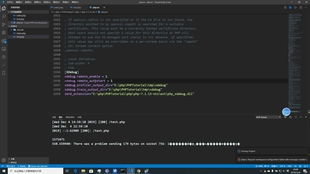
Understanding the ICD-10 Code for Bug Bite: A Comprehensive Guide
Are you aware of the ICD-10 code for bug bite? If not, you’re not alone. Many people are unfamiliar with this specific medical coding system, which is used globally to classify diseases and medical conditions. In this article, we will delve into the details of the ICD-10 code for bug bite, exploring its significance, usage, and implications in the healthcare industry.
What is ICD-10?

The International Classification of Diseases, Tenth Edition (ICD-10) is a medical classification list by the World Health Organization (WHO). It provides a detailed and systematic way to classify diseases, signs and symptoms, abnormal findings, complaints, social circumstances, and external causes of injury or diseases.
ICD-10 Code for Bug Bite: B35.2

The specific ICD-10 code for bug bite is B35.2. This code is categorized under the broader category of “Bites and stings by insects and other arthropods.” It is important to note that this code is used to identify and document bug bites in medical records, insurance claims, and research studies.
Understanding the Code Structure

The ICD-10 code for bug bite, B35.2, follows a specific structure. Let’s break it down:
| Code Component | Description |
|---|---|
| B | Indicates the external cause of injury or diseases, such as bites and stings. |
| 3 | Represents the category of insects and other arthropods. |
| 5 | Indicates the specific type of insect or arthropod, in this case, a bug. |
| 2 | Represents the specific condition or manifestation, which is a bite. |
Usage of ICD-10 Code for Bug Bite
The ICD-10 code for bug bite, B35.2, is used in various scenarios:
-
In medical records: Healthcare providers use this code to document bug bites in patient records, ensuring accurate and consistent documentation.
-
In insurance claims: Insurance companies use this code to identify and process claims related to bug bites, ensuring proper reimbursement for medical services.
-
In research studies: Researchers use this code to analyze data related to bug bites, enabling better understanding and management of these conditions.
Significance of ICD-10 Code for Bug Bite
The ICD-10 code for bug bite, B35.2, holds several important significances:
-
Standardization: The code provides a standardized way to document and classify bug bites, ensuring consistency across different healthcare providers and institutions.
-
Research and surveillance: The code facilitates research and surveillance efforts by enabling the collection and analysis of data related to bug bites.
-
Insurance claims processing: The code helps insurance companies process claims related to bug bites efficiently and accurately.
Prevalence and Impact of Bug Bites
Bug bites are a common occurrence worldwide, affecting millions of people each year. These bites can range from mild to severe, causing discomfort, pain, and in some cases, serious complications. Some common types of bug bites include mosquito bites, bed bug bites, and tick bites.
Prevention and Treatment of Bug Bites
Preventing and treating bug bites is crucial to minimize their impact. Here are some tips:
-
Use insect repellents: Apply insect repellents containing DEET or picaridin to protect against mosquito and tick bites.
-
Wear protective clothing: When in areas with high bug activity, wear long-sleeved shirts, pants, and hats to minimize exposure.
-
Keep your home clean: Regularly vacuum and clean your living spaces to eliminate potential bug habitats.
-
Seek medical attention: If you experience severe







